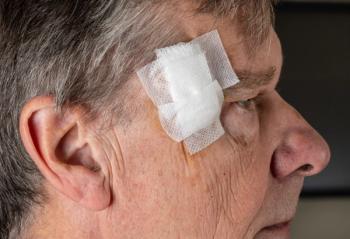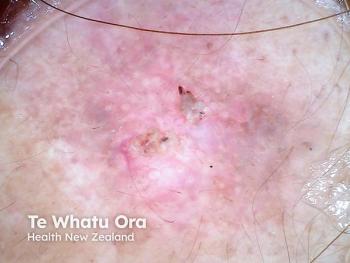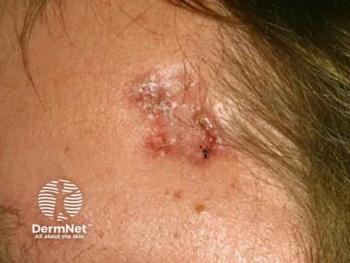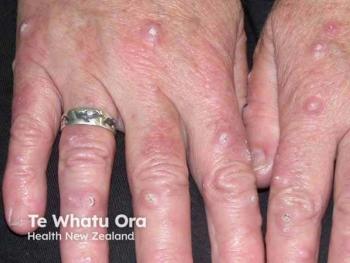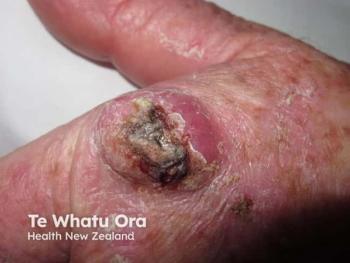
- Dermatology Times, November 2020 (Vol. 41, No. 11)
- Volume 41
- Issue 11
Smartphone apps not effective in skin cancer risk
Researchers conducted a critical appraisal of a systematic review of six different smartphone apps and found little evidence that they are effective in self-monitoring or skin cancer detection, according to a recent study.
A recent review1 of a study evaluating the use of algorithm-based smartphone applications (apps) to assess skin cancer risk found that the currently available technologies used in this niche still need improvement to be effective. As such, clinicians and their patients should be wary of relying on these apps when assessing skin cancers.
The incidence of skin cancers is on an alarming rise, with up to 3 million occurring worldwide. Melanomas account for approximately 4% of skin cancers and are responsible for 75% of deaths. That underscores the necessity for self-monitoring and earlier detection which can impact survival outcomes from melanoma. Algorithm-based smartphone apps used for skin cancer diagnosis are designed to potentially help facilitate early detection of otherwise aggressive life-threatening skin cancers, allowing patients to seek further medical assessment of suspicious lesions in a timely fashion.
Researchers from the University of Manchester recently conducted a critical appraisal1 of the systematic review performed by Freeman et al2 which evaluated algorithm-based smartphone apps used to assess the risk of skin cancer in suspicious skin lesions. The systematic review included nine studies that evaluated six different identifiable smartphone apps. Of these, six studies verified results by using histology or follow-up, with five studies evaluating the detection of melanoma and one study evaluating the SkinVision app, designed to detect other skin cancers such as basal cell carcinoma (BCC) and SCC as well as premalignant conditions. Three studies, all evaluating the SkinVision app, verified results by using expert recommendations for whether further investigation or intervention should be pursued. Two included diagnoses for all types of premalignant and malignant lesions, and one study did not report the expert diagnosis.
“Freeman et al produced a high-quality systematic review, showing that there is little evidence that smartphone apps can be useful in self-monitoring and detection of skin cancer at present,” write Zenas Zee Ngai Yiu, M.D., and colleagues, Dermatology Centre, Salford Royal NHS Foundation Trust, NIHR Manchester Biomedical Research Centre, University of Manchester, Manchester Academic Health Science Centre, Manchester, U.K.
The overall results of the Freeman paper show variable and unreliable test accuracy across the selected smartphone apps. According to the researchers, the systematic review was well conducted and reported. Investigators used QUADAS-2, a validated tool to assess diagnostic accuracy studies, to assess study quality. They found that each included study had a high risk of bias in at least one of four QUADAS-2 domains.
Of the studies included in the review, the researchers note that the selectively recruited participants were not fully representative of the general population. Seven studies recruited patients who were already selected for excision of suspicious lesions or undergoing assessment of their skin conditions by dermatologists. Moreover, the researchers found it ambiguous as to whether skin of color and special sites, such as acral skin and nails, were represented adequately.
“Without a focus on whether the patient sample is generalizable to the population, including an adequate representation of different skin colors and body sites, algorithms risk producing biased results,” the researchers wrote.
When evaluated in a representative sample for the target population, the positive predictive value (PPV) of the algorithms can prove useful as a screening tool. However, this was not reported or extracted in the systematic review. According to the researchers, any given screening test will likely have a higher PPV for common skin cancers and a lower PPV with a high false positive rate in a disease of lower prevalence, i.e. melanoma.
“This may have a low impact on improving patient survival from melanoma but a high adverse effect of increasing overdiagnosis, unnecessary healthcare visits and potentially procedures, increasing use of scarce healthcare resources,” say the researchers.
To improve upon smartphone apps used for skin cancer diagnosis, the researchers suggest that future studies and systematic reviews for these report on the presence of industry funding and the PPV where appropriate, highlight whether special body site images were included in the training and validation datasets and report whether the proportion of participants of skin of color reflects the target population.
Disclosures: No relevant disclosures were reported.
References:
1. Malhi IS, Yiu ZZN. Algorithm based smartphone apps to assess risk of skin cancer in adults: critical appraisal of a systematic review. Br J Dermatol. 2020 Aug 31. doi: 10.1111/bjd.19502. Online ahead of print.
2. Freeman K, Dinnes J, Chuchu N, Takwoingi Y, Bayliss SE, Matin RN, Jain A, Walter FM, Williams HC, Deeks JJ. Algorithm based smartphone apps to assess risk of skin cancer in adults: systematic review of diagnostic accuracy studies. BMJ. 2020 Feb 10;368:m127. doi: 10.1136/bmj.m127.
Articles in this issue
about 5 years ago
Mohs micrographic presents challenges in kidsabout 5 years ago
Novel device characterizes mite infestationsabout 5 years ago
Adjunctive examined for facial erythemaabout 5 years ago
Caffeine's role in skincareabout 5 years ago
Strategies for choosing and using neuromodulatorsabout 5 years ago
Robotic-controlled laser advances body contouringabout 5 years ago
Gene expression profile test predicts metastatic riskabout 5 years ago
New vehicles improve tolerability, acceptabilityabout 5 years ago
HIPAA, COVID-19 and jailabout 5 years ago
Treatment improves QOL for patients with acneNewsletter
Like what you’re reading? Subscribe to Dermatology Times for weekly updates on therapies, innovations, and real-world practice tips.

